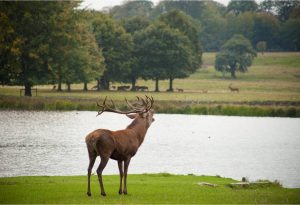Coronavirus business update: Latest news across the North West

Staff, students and alumni from The University of Manchester have raised more than £1m so far, for the institution’s Coronavirus Emergency Hardship Fund for students.
The campaign launched in April to support students facing financial hardship during the coronavirus pandemic.
Students from low-income backgrounds are most likely to be impacted due to the current situation. One-in-four undergraduates at Manchester come from such a background – one of the highest proportions of students at a Russell Group institution.
The money raised through the appeal will go directly to supporting the students most in need. This will be through initiatives like emergency grants, bursaries, wellbeing projects and access to education.
Since the campaign’s launch more than 2,000 people from around the world – 84 countries to be exact – with an affiliation to the university have so far donated.
President and vice-chancellor, Prof Dame Nancy Rothwell, said: “I am proud of the way that our community has responded to support current students.
“Thanks to donations from around the world, students at The University of Manchester will have access to an increased level of financial support, at a time when it is needed more than ever.”
The institution is working closely with its Students’ Union (UMSU) to ensure that the funds being raised will benefit the students who are most in need of support.
The campaign continues to gather momentum, with the number of donations received from supporters around the world increasing daily.
The profound impact of the pandemic on students – with a collapse in part time work, Summer internships and the graduate job market – means there is still much to do, and the university is striving to raise as much as possible in support of those students in greatest need.
::

Stag in Tatton Park
Two of the region’s best attractions are to reopen following the easing of lockdown conditions.
Tatton Park opened up its parkland to the public yesterday, (June 3), while conservation charity WWT has announced it is to re-open its Martin Mere Wetland Centre on Wednesday, June 10.
A phased reopening of Tatton Park will see the parkland and toilets reopen on June 3, with plans to reopen the gardens to pre-booked visitors from June 8.
The farm and mansion will remain closed, however.
The position on these and other facilities, such as shops and catering, will be kept under review in the light of the latest government guidance and the ability to open safely for staff and visitors.
Cllr Nick Mannion, Cheshire East Council cabinet member for environment and regeneration, said: “Last week the Government finally clarified guidance on pay-for-entry outdoor attractions, which were supposed to stay closed until July, so that people can now ‘visit gardens and land maintained for public use as an alternative open space to spend time outdoors’.
“In response, Tatton Park, which is operated by Cheshire East Council on behalf of the National Trust, along with National Trust and other large outdoor destinations, has implemented plans for a phased reopening.”
Access to Martin Mere will also be carefully managed.
To help protect visitors, staff and volunteers, daily numbers will be restricted and both WWT members and non-members are requested to book on digitickets beforehand so the charity can monitor numbers. Social distancing and additional safety measures will be in place.
WWT’s chief operating officer, Kevin Peberdy, said: “We are delighted to be able to welcome people back to our wetlands after this extended period of lockdown.
“The lockdown has forced many of us onto the sidelines while Spring’s great spectacle plays out, and what better way to catch up, than with a visit to our wetlands to see what nature’s been up to. It’s certainly been busy – above water and under water, our wetlands are teeming with wildlife.”
In line with government guidelines, Martin Mere Wetland Centre’s indoors areas and areas where people may gather will remain closed, this includes play areas, cafes and shops.
::

Provided by Wirral Council, PPE packs include fluid-resistant surgical facemasks, disposable aprons, disposable gloves, hand sanitiser and full-face splash visors.
The packs have been compiled by the council’s facilities management team which, alongside existing duties, has also managed the collection process and made some home deliveries when needed.
Paul Boyce, director for children, families and education, said: “We understand the importance of getting children back into educational settings, however, we must do this with safety at the forefront of every decision. We’re supporting and working with educational settings every step of the way with their planning.
“The PPE starter packs and other materials will hopefully take a little pressure off until they have their own supplies in place. This is being done to keep both children, young people and staff safe, which is the most important thing.”
Wirral’s educational settings are working up their own individual plans and safety assessments, with support of the council, to look at how and when they will safely be able to reintroduce children and young people, in line with government advice.
::

Dr Tracy Epton
More than 150 experts from 35 countries have developed an online tool that allows anyone to calculate their risk of contracting and spreading the virus that causes COVID-19.
The tool, called ‘Your COVID-19 Risk’, helps estimate the risk you may be putting yourself, and those around you, of contracting and spreading COVID-19.
It also collects data internationally, which the team hope will be able to help governments and health agencies on the best measures to take in their region.
Many of the volunteers are psychologists, specialising in behaviour change, though epidemiologists, virologists and other professions are also part of the team.
One of the volunteers is Dr Tracy Epton, a behaviour change expert, from The University of Manchester.
She said: “Until we have a vaccine, behaviour needs to take centre stage if we are to combat this dreadful virus.
“The advice we provide is based on theory and evidence – it is personalised dependent upon the answers people give. It not only tells people what they need to do to reduce their risk, but how to do it.
“This way, users can minimise the risk to themselves and their loved ones.”
She added: “This would not have been possible without an extremely rigorous, systematic, and scalable approach, which manifested itself in the project’s infrastructure.
“The more people that use the tool, the more information we get. This will enable governments and health agencies to keep improving their messages to the general public.”
The tool measures things which we all have some form of control, and can do something about, but does not include risks related to underlying health conditions.
It uses three risk factors: Hand hygiene, keeping sufficient distance in public places, and avoiding going out, to compute how at risk people are in contracting and in spreading the virus.
The tool is based on key behavioural risk factors related to contracting and spreading the virus published in scientific articles since COVID-19’s first appearance in December 2019.








